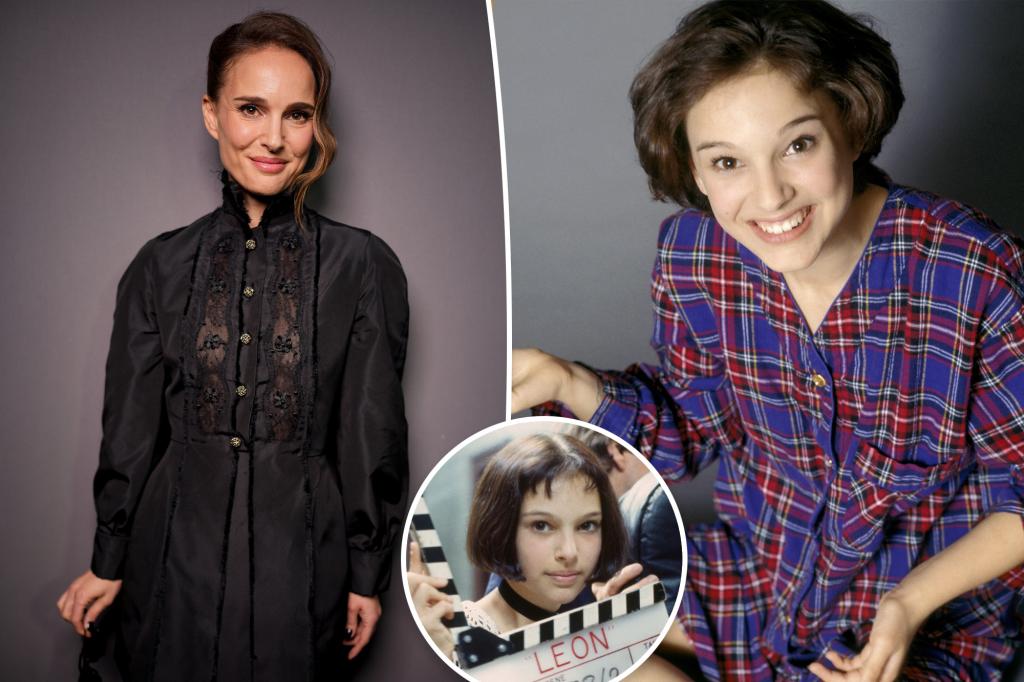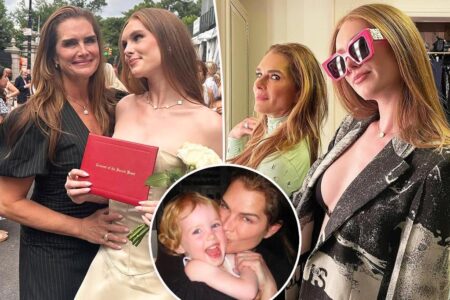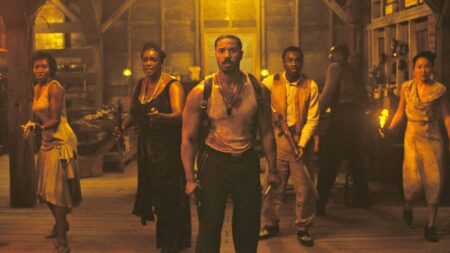Natalie Portman admitted she hid different parts of her personality to protect herself after being sexualized as a young actress.
The “Black Swan” star, 43, bonded with Jenna Ortega over their experiences growing up in Hollywood in a conversation published by Interview magazine Wednesday.
Portman, who landed her first big role in “Léon: The Professional” at 12, noted that being a child actor is “a very unusual, unique experience that not a lot of people share.”
She learned early on that she needed to put up walls as a way of shielding herself from unwanted and inappropriate attention.
“I think there’s a public understanding of me that’s different from who I am. I’ve talked about it a little before — about how, as a kid, I was really sexualized, which I think happens to a lot of young girls who are onscreen. I felt very scared by it. Obviously sexuality is a huge part of being a kid, but I wanted it to be inside of me, not directed towards me,” Portman said.
“And I felt like my way of protecting myself was to be like, ‘I’m so serious. I’m so studious. I’m smart, and that’s not the kind of girl you attack,’” she explained. “I was like, if I create this image of myself, I’ll be left alone.”
Although it “shouldn’t” have been a thing she even had to think about, Portman admitted that “it worked.”
However, it also skewed the way people viewed her as she got older.
“But I think that’s the disconnect between me being stupid and silly in real life, and people thinking that I’m some really serious bookish person,” she continued, noting that she is “not a particularly private person in real life.”
“But in public, it was so clear early on that if you tell people how private you are, your privacy gets respected a lot more,” she added.
Portman noted that the industry has changed a bit since she was a tween, with more and more women working behind the scenes.
“It’s still so largely male, but the conversation around [gender equality] has definitely helped a lot. I feel like hair and makeup was always the female space. It’s quite stereotypical, but it’s true,” she said.
“So there was always this pocket on set where, as a kid, I felt safe and surrounded by women, and as I’ve gotten older, it’s only become more and more important for me to work with women.”
However, Portman noted that there is still room for improvement, pointing to the different types of roles she has been offered during each stage of her career.
“There are definitely tropes, and I think at each phase in my career, there was a different one that I was like, ‘Oh, I’ve got to avoid this,’” she explained.
“Obviously there was a long Lolita phase,” she continued, referencing the infamous 1950s novel about an older man’s obsession with a young woman.
After that period, Portman said she was in a “long ‘chick who helps the guy realize his emotional thing’ phase for about a decade.”
Currently, the “May December” star has found herself being approached for roles about troubled mothers.
“So yeah, there’s a lot of the same tropes, but those are always helpful for pinpointing when something really special comes through,” she said. “It really stands out when you get something complex and beautiful and original.”
Portman has opened up about navigating her early years in the public eye in the past, previously revealing that the first-ever piece of fan mail she received was “a rape fantasy” written by a grown man. She was 13.
During her 2018 speech at the Women’s March in Los Angeles, Portman recalled movie reviewers mentioning her “budding breasts” in reviews.
She also reflected on the creepy countdown created by a local radio show leading up to her 18th birthday, “the date that [she] would be legal to sleep with.”
“I understood very quickly, even as a 13-year-old, that if I were to express myself sexually, I would feel unsafe and that men would feel entitled to discuss and objectify my body to my great discomfort,” she told the crowd.
“I felt the need to cover my body and to inhibit my expression and my work in order to send my own message to the world that I’m someone worth of safety and respect.”
Around the same time, Portman told People that she had come to terms with the fact that none of it was her fault.
“I know I was sexualized in the ways that I was photographed or portrayed, and that was not my doing,” she said.
Read the full article here








